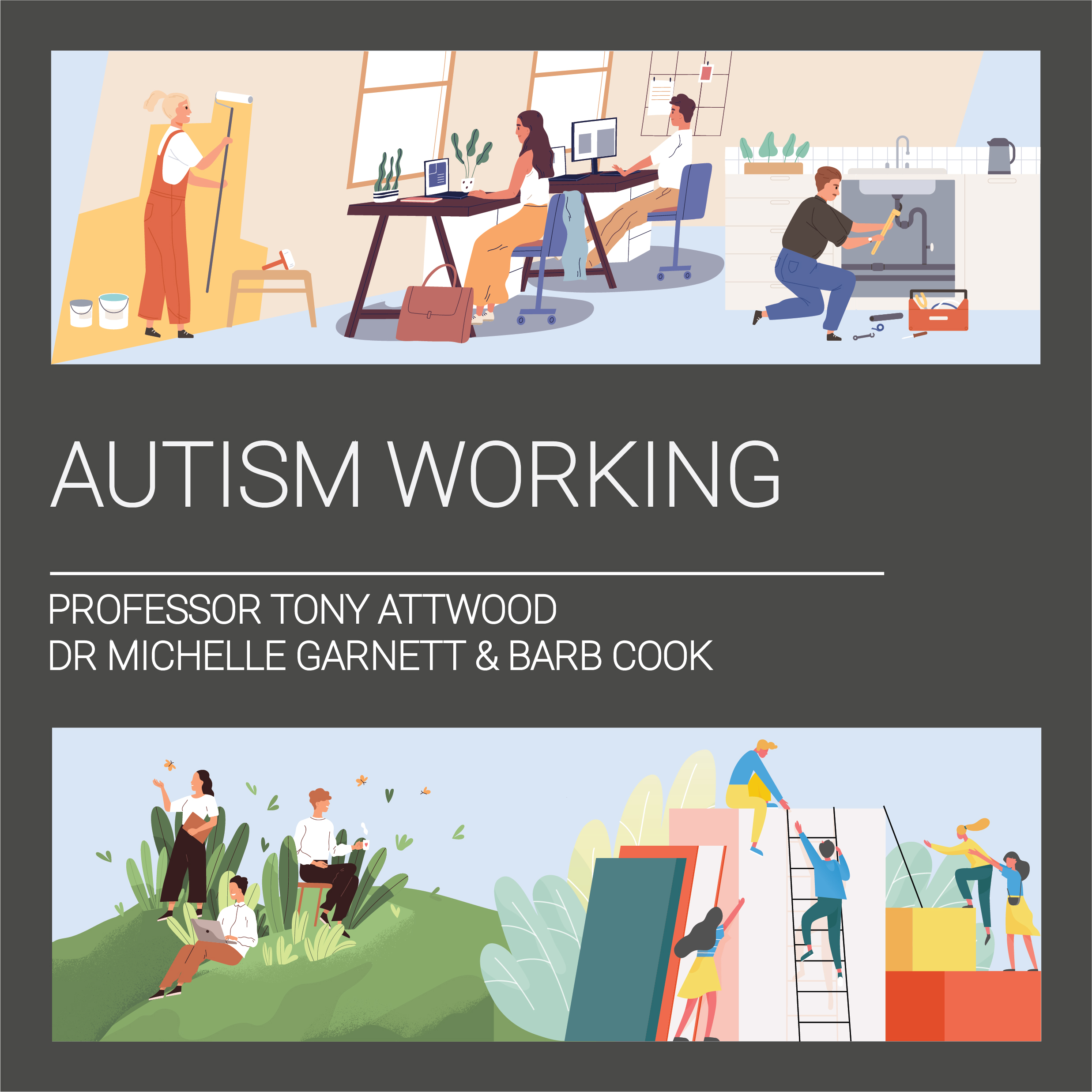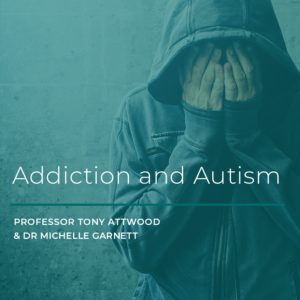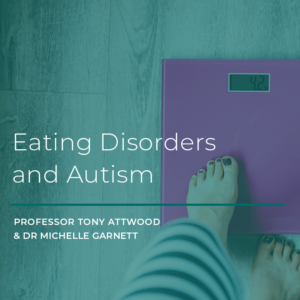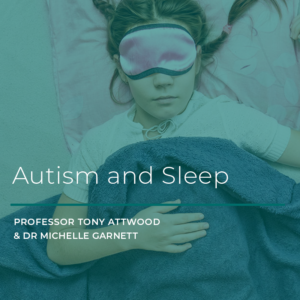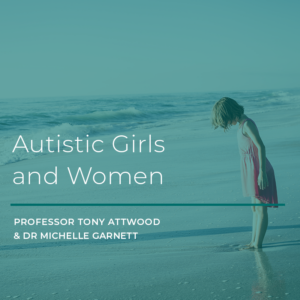Description
When understood and supported, autistic employees have been found to be both more productive and valued than non-autistic employees. This live webcast provides training in the Autism Working programme to increase understanding and support of autistic staff in the workplace. Participants will learn how to assess the profile of the autistic employee leading to the design of a unique Personal Support Plan aimed to increase work satisfaction and productivity across the team.
About the speakers

Prof Tony Attwood PhD With a remarkable career spanning five decades, Professor Tony Attwood is one of the world’s foremost specialists on Autism. Holding an Honour’s degree in Psychology from the University of Hull, a Master’s degree in clinical psychology from the University of Surrey, and a PhD from the University of London, his credentials are a testament to his expertise. Currently serving as an adjunct Professor at Griffith University in Queensland, Professor Attwood’s impact has enriched the global understanding of autism.
Alongside Dr Michelle Garnett, Professor Attwood co-founded Attwood & Garnett Events in 2019, driven by the shared goal of enhancing autism awareness and understanding. Their shared vision seeks to reshape the narrative surrounding autism to create a world where autism is embraced, and the diverse strengths, talents, and perspectives of autistic individuals are celebrated. This transformative narrative fosters a more inclusive and accepting society, benefitting all its members.
Renowned for his extensive contributions to understanding Asperger’s Syndrome, now commonly referred to as autism, Professor Attwood has authored numerous publications on the subject. His seminal book, Asperger’s Syndrome: A Guide for Parents and Professionals debuted in 1998, resonated globally and has since found its voice in over 25 languages, making his insights accessible across cultures and continents.
With a dedicated commitment to practical application, he has run a private practice for 30 years, only recently closing his books due to a long waiting list. Beyond his clinical work, he dedicates significant time to travel, sharing insights and knowledge through workshops and seminars across national and international platforms.

Dr Michelle Garnett PhD is a clinical psychologist with more than 30 years of specialising in autism. In 2005, she founded Minds & Hearts, a clinic specialised to autism, where she served as Clinical and Managing Director for 14 years until 2019. Alongside Tony Attwood she co-founded Attwood & Garnett Events in 2019, aiming to enhance autism awareness and understanding with a vision to foster a neuro-affirming community.
In addition to her extensive private practice, Dr Garnett has significantly contributed to autism research, authored influential books, and engaged in impactful speaking engagements. Her peer-reviewed research has informed our understanding of early autism identification, the female autism profile, and the link between mental health and positive outcomes in autistic individuals. She has co-authored six respected books on autism, including the influential Spectrum Women: Walking to the Beat of Autism (2018) with Barb Cook, a seminal work on the female autism experience. Her recent books, Having Fun with Feelings on the Autism Spectrum and Ten Steps to Reducing Your Child’s Anxiety on the Autism Spectrum offer invaluable guidance to parents of young autistic children.
Dr Garnett is a sought-after presence in academic circles, presenting as a Keynote Speaker at conferences and conducting workshops, seminars, and training sessions on autism across Australia, the UK, and Europe. Her influence extends to universities, autism organisations, government, and non-governmental bodies, solidifying her reputation as a prominent figure in the autism field. Dr Garnett is autistic and has ADHD, late diagnosed.
 Barb Cook is a registered Developmental Educator (DE), Deputy Chair of the Developmental Educators Australia Incorporated (DEAI), and an Autism and Neurodiversity Employment Consultant and Life Coach for neurodivergent adults (ADHD, autism and dyslexia). Barb holds a Master of Autism (education) degree with focus on employment from the University of Wollongong, where she is also a researcher and co-project lead in the area of self-determination and self-advocacy for adults on the autism spectrum.
Barb Cook is a registered Developmental Educator (DE), Deputy Chair of the Developmental Educators Australia Incorporated (DEAI), and an Autism and Neurodiversity Employment Consultant and Life Coach for neurodivergent adults (ADHD, autism and dyslexia). Barb holds a Master of Autism (education) degree with focus on employment from the University of Wollongong, where she is also a researcher and co-project lead in the area of self-determination and self-advocacy for adults on the autism spectrum.
Barb has extensive experience in working with people on the autism spectrum, ADHD and dyslexia, especially with adults in creating pathways in attaining life goals in the areas of self-determination and self-advocacy, education, employment, health and interpersonal relationships.
Barb is Director and Founder of NeuroEmploy Pty Ltd, a company providing a variety of neurodiversity specific educational and training programs for neurodivergent individuals, workplace staff, management and businesses. Barb is founder of Spectrum Women Magazine and editor and co-author of the internationally acclaimed book, Spectrum Women: Walking to the Beat of Autism.
Barb is a prolific writer on neurodivergence and employment and is published in academic research.Barb identifies as neurodivergent, being diagnosed mid-life with autism, ADHD and dyslexia in 2009, and promotes a strength-based and person-centred approach in her life and work.
Learning Objectives
By the end of the training the participant will be able to:
- Describe the likely strengths and qualities in abilities, learning style and personality of an autistic employee, and how employing an autistic person will enhance work culture and improve the bottom line.
- Understand the likely challenges the autistic employee may experience at work.
- Be able to use six (6) tools that come with the programme to assess the profile of strengths and challenges associated with autism to design a Plan to Thrive at Work.
- Design workplace accommodations that are uniquely tailored to the autistic employee to maximise their workplace satisfaction and productivity.
- Understand the link between autism and stress and be able to apply powerful autism-friendly stress reduction strategies to increase work satisfaction and productivity.
- Know how to assess breakdowns in communication within the team and management and apply autism-informed communication repair strategies.
- Equip your autistic employee with tools and strategies to thrive at work, whether the challenges are social, sensory, attitudinal, or related to executive functioning difficulties.
Modules Breakdown & Pre-Reading
Modules
Module 1: Understand the strengths and challenges of autism, how to recognise these at work, and how to assess these using six (6) tools.
Module 2: Learn the links between stress, autism and sensory processing, and master the strategies and tools to support your autistic employee with both environmental accommodations and new skills.
Module 3: Understand the learning profile and thinking style of your autistic employee/s to maximise their creativity, productivity and work satisfaction, and minimise interpersonal conflict and misunderstandings.
Module 4: Learn tools to encourage and maintain an inclusive workplace, address the double-empathy problem, repair interpersonal breakdowns at work and to create a thriving and productive workplace culture.
Pre-Reading
Participants will be assisted by reading our book prior to the course, but this is not essential.
Garnett, M.S. & Attwood, T. (2021). Autism Working: A Seven-Stage Plan to Thriving at Work. Jessica Kingsley Publishers.
 Barb Cook is a registered Developmental Educator (DE), Deputy Chair of the Developmental Educators Australia Incorporated (DEAI), and an Autism and Neurodiversity Employment Consultant and Life Coach for neurodivergent adults (ADHD, autism and dyslexia). Barb holds a Master of Autism (education) degree with focus on employment from the University of Wollongong, where she is also a researcher and co-project lead in the area of self-determination and self-advocacy for adults on the autism spectrum.
Barb Cook is a registered Developmental Educator (DE), Deputy Chair of the Developmental Educators Australia Incorporated (DEAI), and an Autism and Neurodiversity Employment Consultant and Life Coach for neurodivergent adults (ADHD, autism and dyslexia). Barb holds a Master of Autism (education) degree with focus on employment from the University of Wollongong, where she is also a researcher and co-project lead in the area of self-determination and self-advocacy for adults on the autism spectrum.
